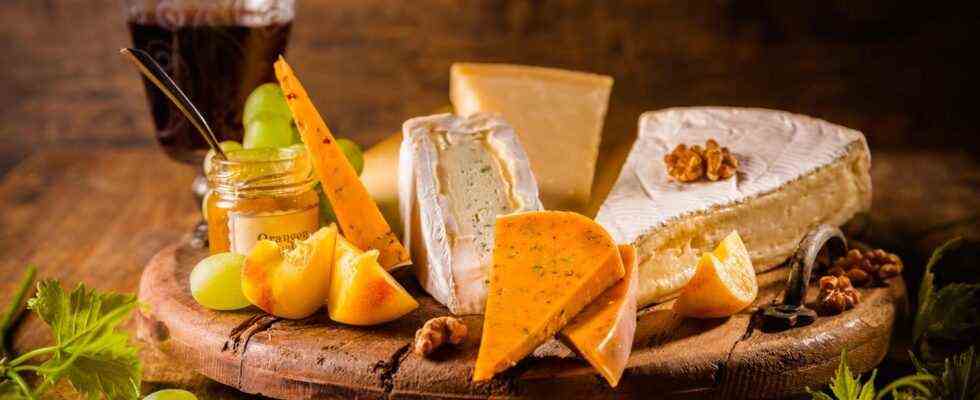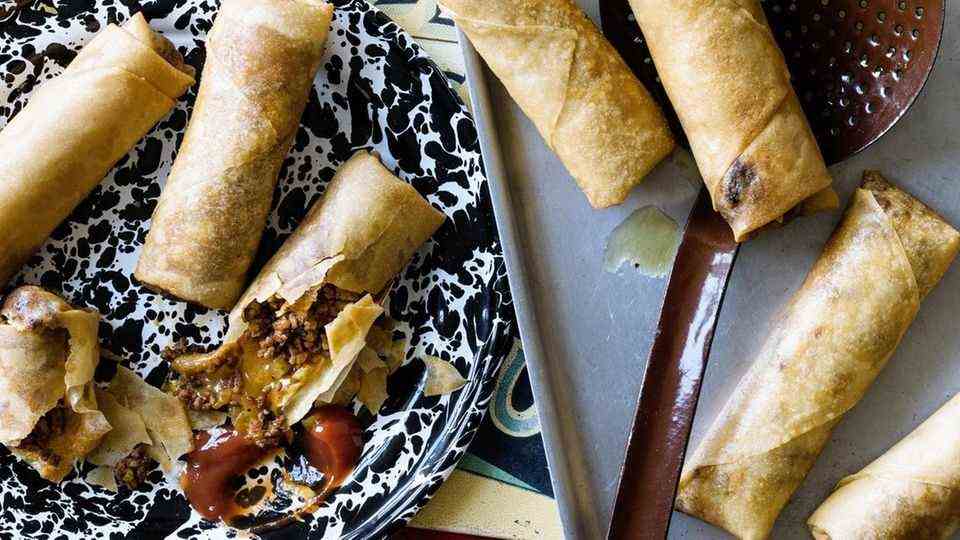Healthy and sustainable nutrition
Which cheese is the healthiest and which type is not recommended by experts
Which type of cheese is particularly healthy – and which is not?
© pepmiba / Getty Images
Gouda, parmesan, blue cheese or cheddar? The list of cheeses is long. Experts from New York claim to have identified the healthiest cheese. And give tips on which varieties are better to stay away from.
Even if the food trend is towards alternatives to cow’s milk: Germans still like to eat cheese. We eat per capita 25.4 kilograms of the popular milk product. The trend has been rising slightly for years.
But how healthy is cheese anyway?
It’s not that easy to answer, because the variety of cheeses also makes the division into “healthy” or “not healthy” difficult.
What makes cheese healthy
Cheese contains proteins and fats, few carbohydrates, a lot of calcium and vitamins. Cheese is a good source of calcium and protein, says Lourdes Castro Mortillaro, a nutritionist and director of the NYU Food Lab, “CNNThe protein contained in cheese is a good alternative to protein from meat. It contains all the essential amino acids that the body needs but cannot synthesize itself.
What makes cheese healthy
But how much cheese we should eat depends heavily on our lifestyle, according to the expert. “What are you planning to do in your life? And what else are you putting on your plate,” says Mortillaro, describing the approach. So if you move around a lot, you can eat more cheese. The composition of the meals also has an influence on how much cheese is healthy.
This type of cheese is recommended
When it comes to the type of cheese, on the other hand, the expert decides: For her, ricotta is a particularly healthy cheese. The name “ricotta” is derived from the preparation, the “re-cooking”. This is because ricotta is made from whey that has leaked out during cheese production, which is then reheated. Whey is particularly rich in protein and low in fat. “Whey protein is one of the most absorbable forms of protein and contains a very wide range of amino acids,” said nutrition expert Emily Martoran.CNN“.” So this is the best choice for someone who wants to build muscle and strength and lose fat and weight at the same time. “There is also another plus point for ricotta: whey is a by-product of cheese production. Making cheese from it is particularly sustainable , says Martoran.
Hard cheese is also good in principle. However, with restrictions: According to the expert, Parmigiano, Pecorino or Gouda have a higher calcium content, which is good. In addition, the feeling of fullness would quickly set in with hard cheese, so you don’t eat so much of these types of cheese. However, the sodium content could be higher. “If you are hypertensive, really need to control your sodium intake, or maybe have kidney problems, then it would be better to have a softer cheese,” said Castro Mortillaro.
Call itself cheese, but it isn’t
If you want to lose weight, you should take a closer look at the nutritional values of cheese on the packaging or ask about them at the cheese counter, advises the expert. Because a high proportion of protein is beneficial if you want to build muscle. The ratio of protein to calories should be 1:10, so for 100 calories there should be 10g of protein in the cheese. According to the nutrition expert, these cheeses are particularly healthy. These include light Swiss cheese, ricotta and cheddar cheese.
The expert must clearly advise against heavily processed cheese products. Processed cheese or slices of cheese contain a lot of fat and sodium, warns Martorano. Phosphates are also added to these products. These substances increase the risk of diseases such as heart attack, stroke and osteporosis, reports the “NDR“The US food regulatory authority FDA has therefore not even classified processed cheese and Co. as cheese.
Also read:
These noodles are supposed to make you slim – we tested them
Noveltea in the test: how does the tea taste with gin, rum or whiskey?
Ikea, Pepsi, Lego and Co .: This is how these companies got their names
This mattress completely convinced the Stiftung Warentest



